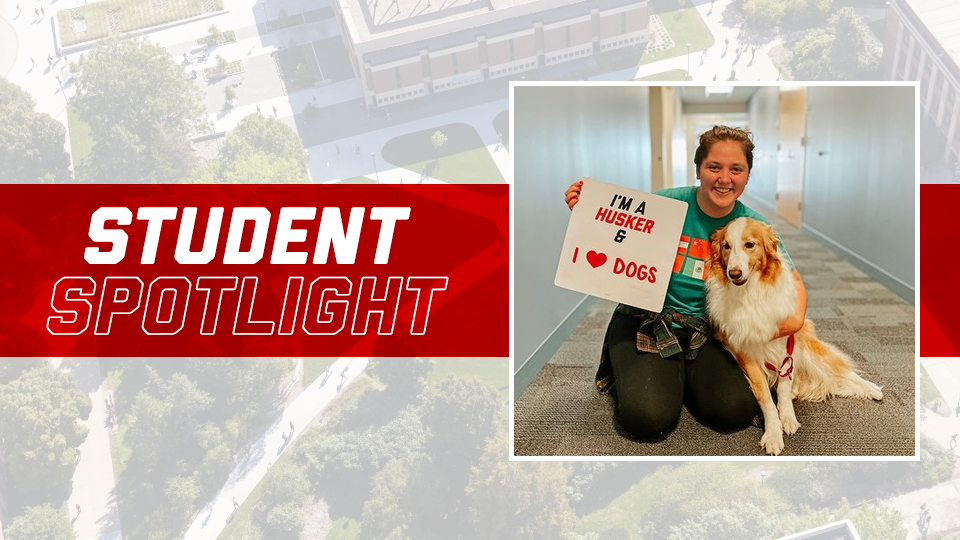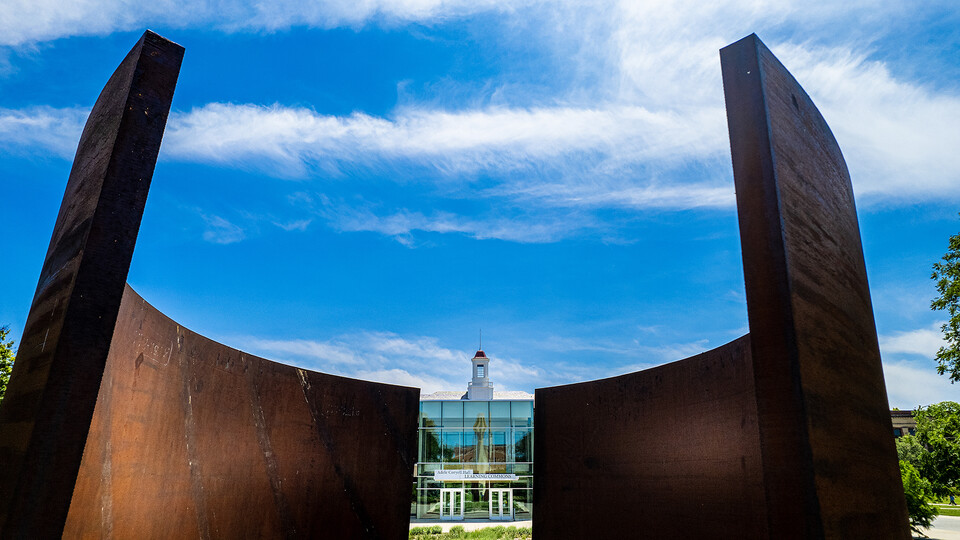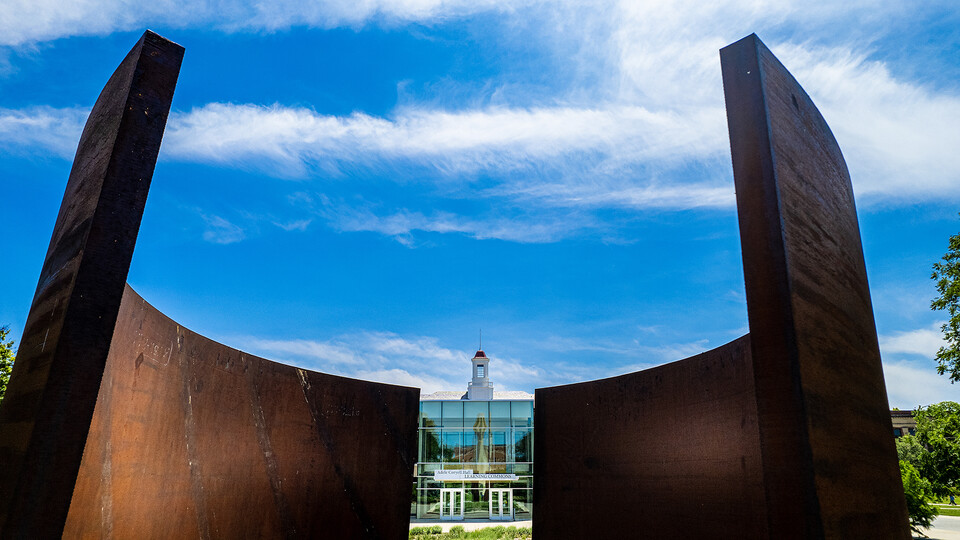
Area of Study: Psychology
Hometown: Portland, Oregon
When she's not walking her pup—English Shepherd and CCHIL research helper Linus—or leading new research at the Canine Cognition and Human Interaction Lab (CCHIL), third-year graduate student London Wolff is training service and therapy dogs.
London has been training dogs since she was in undergrad. As a dog lover, she always knew she wanted to be around the four-legged friends—but when she started training them, she realized she had a knack for the task.
"I started getting really into it because it was basically a clear application of learning about the animal mind," London said.
After moving to Lincoln to pursue her Ph.D. with the lab, she became involved with Uplifting Paws. Started by Liz Higley, the organization rescues dogs from shelters and then provides them with round-the-clock training so they can become certified service animals.
Trained service and therapy animals can be expensive. For many people, the cost alone can keep them from implementing these useful animals into their lives.
"I saw that in the service/therapy dog world, there's a huge gap with mental health service dogs because they just don't make them, and they don't really place them... And some of the reasons are because it's hard to get money for them," London said. "Often, people with mental health disparities find it harder to get jobs so they can't pay for the service dogs as well, and even subsidized, they're still upwards of $20,000 to $30,000."
Uplifting Paws service animals cost half to even one-third of the cost of even the most subsidized service animals. Service dog training is not the easiest task, as it requires the animal to live with a volunteer trainer for years and undergo a variety of temperament tests — but for London, it's worth it.
"[Liz] basically was just like, 'We're gonna be doing good for a lot of people,'" London said. "And I'm a sucker for doing good."


